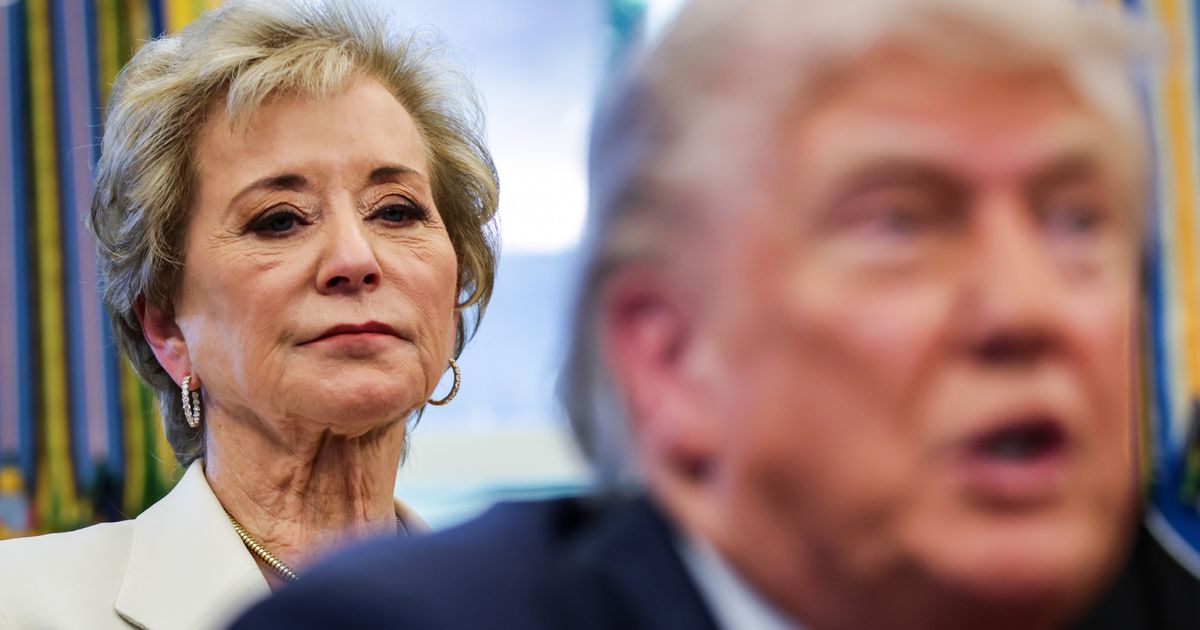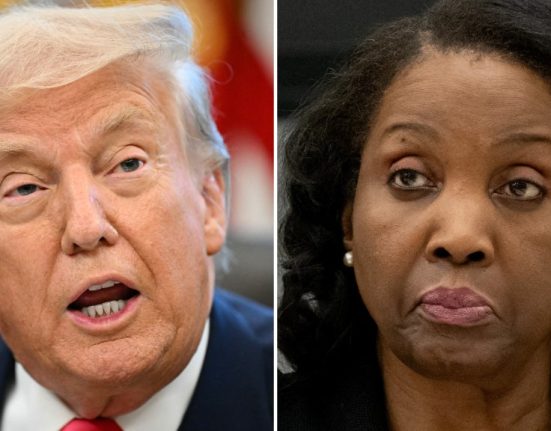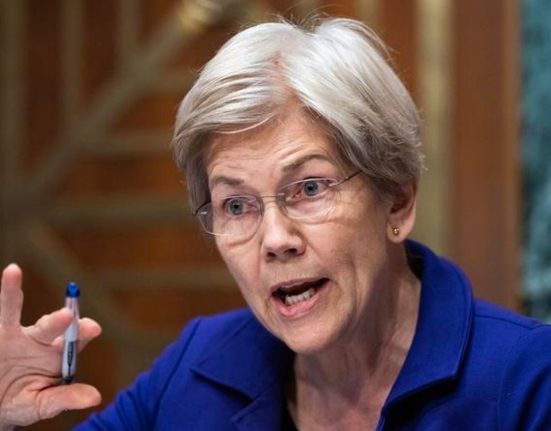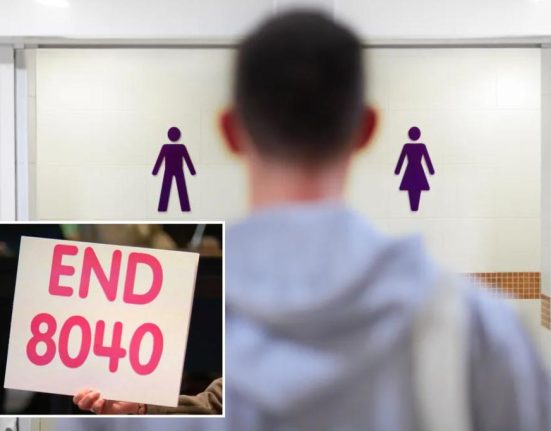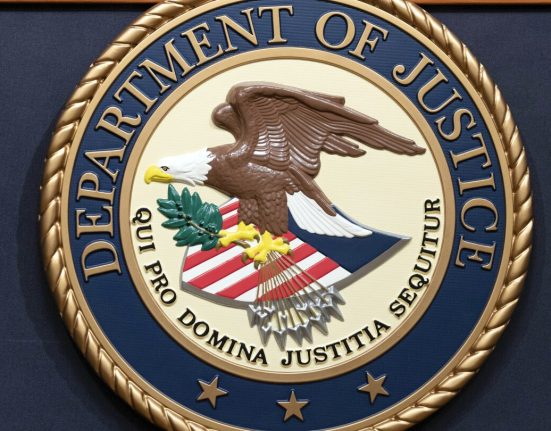
Photo: Samuel Corum/Bloomberg via Getty Images
Public servants are still one of the groups taking the brunt of the assault from Donald Trump’s weaponized federal government. He and his administration have tried to wipe out much of the federal workforce. They’ve threatened or cut the federal funding of a rising number of universities in an attempt to bend them to Trump’s will, regardless of how much harm and havoc that causes. Now it seems likely that Trump’s Education Department is going to find a way to weaponize student loans, too.
Per a new draft proposal, the agency is moving forward with a plan to cancel student loan forgiveness for otherwise eligible public servants who happen to work for organizations Trump wants to tear down.
The Public Service Loan Forgiveness (PSLF) program, which was passed by Congress with bipartisan support in 2007, is supposed to encourage and reward college graduates who devote at least a decade of their careers to helping others. Become a nurse or a teacher or a first responder, or get a job at a non-profit that serves others, and if you have federal student loans and make all your payments for 120 months, the government will take care of the rest of your balance. If implemented correctly, it’s a meaningful potential perk for a lot of people who are trying to make a living making a difference.
In March, Trump signed an executive order directing the Department of Education to deny Public Service Loan Forgiveness to people who work for organizations engaged in illegal or “improper” activities — which in effect means people whose public service doesn’t align with Trump’s political agenda or helps people he and his administration want to hurt.
Following a muddled consultation process with a panel of experts, the Education Department is on its way to implementing that new policy, which would target people involved in whatever Secretary of Education Linda McMahon deems to be “illegal activities,” like assisting undocumented immigrants, supporting transgender people, and so-called terrorism (supporting Palestinians). But as the Associated Press points out, the possible wrongdoing is so open-ended, the policy could be used as a tool of retribution against a wide range of people and organizations:
The proposal’s definitions of illegal activity largely mirror those laid out by Trump. They include “aiding or abetting” in the violation of federal immigration law, and supporting any group designated as a foreign terrorist organization. Also on the list are violations of the Civil Rights Act of 1964, a law Trump officials have invoked to root out diversity, equity and inclusion policies.
Also considered illegal is “engaging in the chemical and surgical castration or mutilation of children in violation of Federal or State law.” It says that includes the use of hormone therapy or drugs that delay puberty. It defines children as those under 19.
It raises concerns that entire hospital systems could become ineligible if a single department provides certain care to transgender youth. Likewise, the federal government could potentially strip the benefit from entire cities that limit cooperation with federal immigration officials.
The proposal will be finalized and then subject to a public commenting period before likely being implemented in July of 2026. An estimated 2 million Americans were eligible for the program as of December. The Biden administration, which worked to expand PSLF and make it run more effectively, cancelled the loan balances of more than a million public servants.
In addition to the PSLF uncertainty, the Department of Education has halted updating payment counts for many student loan borrowers enrolled in PSLF and income-driven repayment (IDR) plans. It’s not clear if that means that affected borrowers’ monthly payments are no longer being counted at all, or if it’s the result of some technical glitch, and/or part of the turmoil caused by the Trump administration’s mass layoffs at the Department of Education (which Trump says he wants to eliminate entirely) and the office of Federal Student Aid (which Trump wants to fold into the also gutted U.S. Small Business Administration).
Trump’s new megabill will mean major changes for student loan borrowers as well. It doesn’t touch the Public Service Loan Forgiveness program, but it limits other student loan forgiveness and IDR plans, as Adam S. Minsky explains at Forbes:
The legislation will phase out most current income-driven repayment plans by July 2026. The SAVE plan, as well as ICR and PAYE, would no longer be an option for any borrower, including those who are now in repayment under those plans. Those who are enrolled in SAVE, ICR, or PAYE would, at some point between July 2026 and 2028, have to either enroll in [the Income-Based Repayment (IBR) plan] or a new income-driven plan created by the bill called the Repayment Assistance Plan. Switching to IBR could result in significantly higher monthly payments for many borrowers, particularly those who had been repaying their student loans under PAYE or SAVE. While RAP could be more affordable for some compared to IBR, the tradeoff would be an additional five to 10 years in repayment before the borrower could qualify for student loan forgiveness. Borrowers who lose access to their current repayment plan and fail to make a selection would be forced into a Standard plan, which could be unaffordable for many.
RAP requires 30 years of repayment before the borrower is eligible for forgiveness, more than any current program. Among other changes the legislation also sets new lower borrowing caps for graduate students and guts the Consumer Financial Protection Bureau, which monitors the student loan servicing industry. And Trump’s megabill did not extend the current exclusion of forgiven student loans from federal taxable income which expires at the end of the year.
The Trump administration continues to make life for student loan borrowers more difficult and their options for relief more limited, and soon, PSLF may be used to punish or cajole as much as it is to reward.

